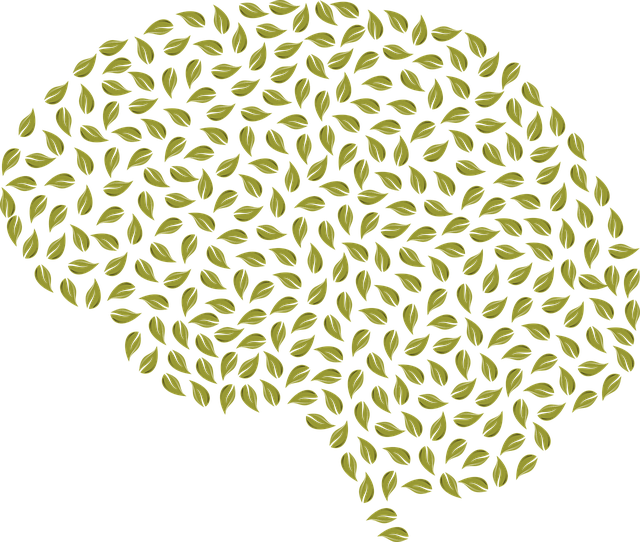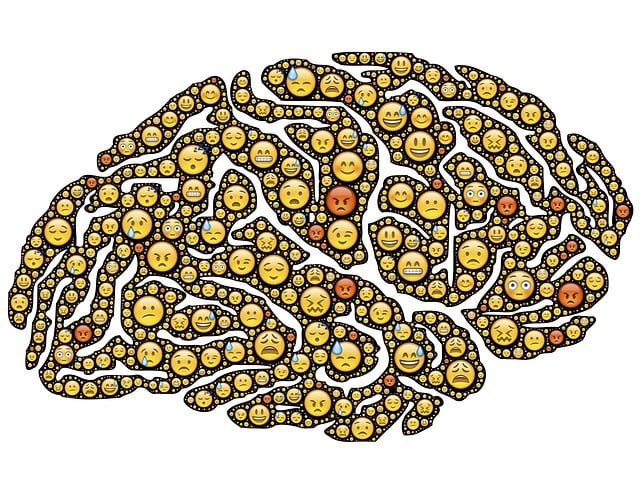Diagnosing mental illness accurately in complex cases, as seen in Denver Alcohol Abuse Therapy (DAAT), requires nuanced approaches and comprehensive assessments. DAAT exemplifies a progressive strategy that combines clinical excellence with human-centric methods like empathy building, mental wellness coaching, and community support. They integrate advanced diagnostics, promote mental health awareness, and offer training for therapists to enhance diagnosis accuracy. Community collaboration and early intervention further improve outcomes, positioning DAAT as a leader in comprehensive treatment for alcohol abuse and other mental health challenges.
Mental illness diagnosis accuracy is a critical aspect of patient care. This article explores efforts to enhance diagnostic precision, focusing on various strategies such as advanced diagnostics, integrated treatment methods, improved professional training, and community support. We delve into the challenges faced in mental health assessment, highlighting a case study of Denver Alcohol Abuse Therapy’s accurate evaluation approach. Additionally, we discuss early intervention’s vital role in improving outcomes, drawing insights from these initiatives to advance mental health care.
- Understanding the Challenges of Mental Illness Diagnosis
- Denver Alcohol Abuse Therapy: A Case Study in Accurate Assessment
- Integrating Advanced Diagnostics and Treatment Methods
- Enhancing Professional Training and Education
- The Role of Community Support and Early Intervention
Understanding the Challenges of Mental Illness Diagnosis

Diagnosing mental illness accurately is a complex task, often shrouded in challenges that can impede effective treatment. The vast spectrum of disorders, each with its unique set of symptoms and presentations, demands a nuanced understanding from healthcare professionals. Many conditions share overlapping signs, leading to potential misdiagnosis or delayed identification. This complexity is further complicated by the fact that mental health issues frequently co-occur with substance abuse, such as alcohol dependency, as seen in Denver Alcohol Abuse Therapy settings. Such comorbidity not only adds another layer of diagnostic difficulty but also necessitates integrated treatment approaches addressing both conditions simultaneously.
The quest for improved diagnosis accuracy involves recognizing the importance of comprehensive assessments, which may include various therapeutic methods and tools tailored to individual patient needs. Building on mental wellness and inner strength development, healthcare providers can foster an environment of open communication, encouraging individuals to share their experiences and perspectives. The integration of Mental Wellness Podcast Series Production can also offer valuable insights into managing symptoms, promoting self-awareness, and providing community support, ultimately enhancing the diagnostic process and treatment outcomes.
Denver Alcohol Abuse Therapy: A Case Study in Accurate Assessment

In the context of mental illness diagnosis, the case study of Denver Alcohol Abuse Therapy (DAAT) stands out as a beacon of hope and improved assessment methods. DAAT has pioneered several strategies to enhance the accuracy of diagnoses, focusing on both clinical rigor and human connection. The therapy program emphasizes the importance of Empathy Building Strategies in creating a safe space for clients to open up about their struggles. This not only Boosts Confidence in self-disclosure but also ensures that therapists capture nuanced details crucial for an accurate diagnosis.
Beyond traditional therapy models, DAAT has incorporated Mental Wellness Coaching Programs Development as a complementary approach. These programs go beyond treating symptoms by teaching clients valuable coping mechanisms and life skills, thereby fostering better mental wellness outcomes. The holistic nature of these initiatives underscores DAAT’s commitment to not just diagnosing but also effectively addressing alcohol abuse and other mental health challenges.
Integrating Advanced Diagnostics and Treatment Methods

In the pursuit of enhancing mental illness diagnosis accuracy, integrating advanced diagnostics and treatment methods emerges as a pivotal strategy. Denver Alcohol Abuse Therapy, for instance, has witnessed significant advancements by incorporating cutting-edge technologies such as brain imaging and genetic testing. These tools enable practitioners to gain deeper insights into the neurobiology behind various disorders, leading to more precise assessments. Additionally, Mind Over Matter principles have found their place in modern therapy, focusing on empowering individuals with self-regulation techniques that promote mental resilience.
Promoting Mental Health Awareness is another critical aspect of these efforts. Through educational initiatives and open discussions, communities can foster a better understanding of mental health issues, reducing the stigma often associated with seeking treatment. Conflict Resolution Techniques also play a significant role in improving diagnosis accuracy. By teaching individuals effective communication strategies, these techniques enhance the therapeutic process, allowing for more transparent and accurate disclosures during assessments, thereby contributing to overall diagnostic reliability.
Enhancing Professional Training and Education

Professional training and education play a pivotal role in enhancing the accuracy of mental illness diagnoses. With advancements in research and a growing understanding of various conditions, therapists and healthcare professionals must stay updated with the latest practices and knowledge. Comprehensive training programs that cover diverse mental health topics, including mood management, can empower practitioners to recognize subtle symptoms and differentiate between similar disorders. This is especially crucial for complex cases where co-occurring disorders are common, such as in Denver Alcohol Abuse Therapy settings.
Improving diagnostic accuracy requires ongoing education that goes beyond textbook knowledge. Encouraging professionals to stay engaged with continuous learning ensures they are equipped to handle a wide range of patient presentations. Additionally, promoting mental health awareness among the general public can facilitate earlier identification of issues and encourage individuals to seek appropriate help. Incorporating practices like Mental Wellness Journaling Exercise Guidance into therapeutic routines can further enhance understanding and communication between patients and healthcare providers.
The Role of Community Support and Early Intervention

In improving mental illness diagnosis accuracy, community support plays a pivotal role. The collaborative efforts of local organizations, healthcare providers, and peers can significantly enhance early intervention strategies. This collective approach ensures that individuals facing challenges like depression, anxiety, or even substance use disorders (such as those seeking Denver Alcohol Abuse Therapy) receive timely support. By fostering an environment that encourages open conversations about mental health, communities can reduce the stigma associated with these issues, encouraging individuals to seek help without fear of judgment.
Early intervention is crucial in building resilience and promoting better mental health outcomes. Implementing programs focused on self-care routine development and stress management techniques empowers individuals to take charge of their well-being. These initiatives, coupled with effective communication and accessible resources like Denver Alcohol Abuse Therapy services, can profoundly impact a person’s ability to manage and overcome their mental health struggles.
Mental illness diagnosis accuracy has seen advancements through various integrated efforts, from advanced diagnostics like Denver Alcohol Abuse Therapy case studies to enhanced training and community support. By combining innovative assessment methods with improved education and early intervention strategies, we can better navigate the complexities of mental health, ensuring more accurate diagnoses and effective treatment plans for all individuals in need.














